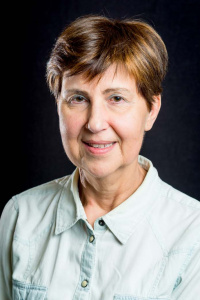Maria Teresa Capria, 1954-2022
We are deeply saddened to learn that Maria Teresa Capria passed away on Friday 15 April after a 5-year long illness.
Maria Teresa Capria was one of the founders of Europlanet, leading the Integrated and Distributed Information Service (IDIS) in the original European Planetology Network (EuroPlaNet) project from 2005-2008 and the first Europlanet Research Infrastructure (RI) from 2009-2012, and participating in the Virtual European Solar and Planetary Access (VESPA) service in the Europlanet 2020 RI project from 2015-2019. She chaired the local organising committee for the European Planetary Science Congress (EPSC) in Rome in 2010.
Obituary
(Translated and abridged from the original version in Italian on the INAF website.)
Maria Teresa Capria passed away on Friday 15 April after a 5-year long illness that she faced with the dignity, determination and tenacity that characterised her as a person and a scientist.
She began her scientific career in the early 1980s as a young graduate in computer science at the Institute of Space Astrophysics, a node in the Italian National Research Council (CNR) computing network that served all research institutes in southern Italy.
This was followed by some years in Oberpfaffenhofen at DLR, the German Aerospace Centre, working with Gerhard Neukum, one of the pioneers of planetary science in Germany. Here, Teresa received her introduction to image analysis, applying state-of- the-art remote sensing software to planetary data. This experience strengthened her collaboration with the IAS Planetology group, working on the small bodies of the Solar System that would later become the core of her scientific activity.
At the beginning of the 1990s, under the guidance of Angioletta Coradini, the IAS Planetology group began to participate in space missions. Teresa offered to take on the responsibility of data archiving, starting with the VIRTIS instrument on board the European Space Agency’s Rosetta probe.
Teresa also worked on high-resolution spectroscopy of comets. In the early 2000s she collaborated with Japanese colleagues, who hosted her for a few months at the National Astronomical Observatory of Japan in Tokyo.
The experience Teresa gained within the Rosetta mission paved the way for a new collaboration with Padua Observatory, working on the stereo cameras of the SIMBIO-SYS instrument suite on the BepiColombo mission to Mercury.
Teresa’s scientific preparation, perseverance, serenity, clear vision and fair-minded judgments made her a highly valued member of committees and working groups. Among her many roles, she was a member of the INAF Scientific Council from 2016 to 2020, a member of the AstRoMap team (Astrobiology and Planetary Exploration Road Mapping) an FP7 project of the European Commission, and was the Italian manager of Europlanet in successive EU-funded projects. She played a leading role in the management structure of the Cospar (COmmittee for SPAce Research) as Chair of the Scientific Commission B: Space Studies of the Earth-Moon System, Planets, and Small Bodies of the Solar System. Finally, she was the driving force behind the Italian Society of Planetary Sciences, formed a few months ago, of which she was the President.
Teresa was a welcoming and reassuring figure for young researchers, generous with suggestions and advice, always willing to collaborate, never unkind, and passionate about her work. These aspects of her teaching will live on. We will miss her.
Teresa was a very cooperative colleague who made her knowledge available to others. We have worked for years on the development of a numerical code for the thermophysical evolution of comets, a particularly complex code in which your experience was essential. She has always found solutions to the various problems that gradually emerged and, thanks to her, this code has been enriched and has become a reference point for the community that studies comets. I learned a lot from her, not only regarding the solution of complex equations, but above all not to be the owner of her own knowledge but to share it with others.
Maria Cristina De Sanctis



